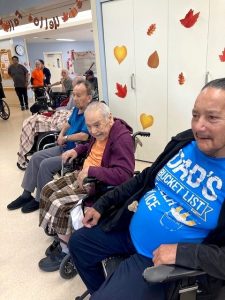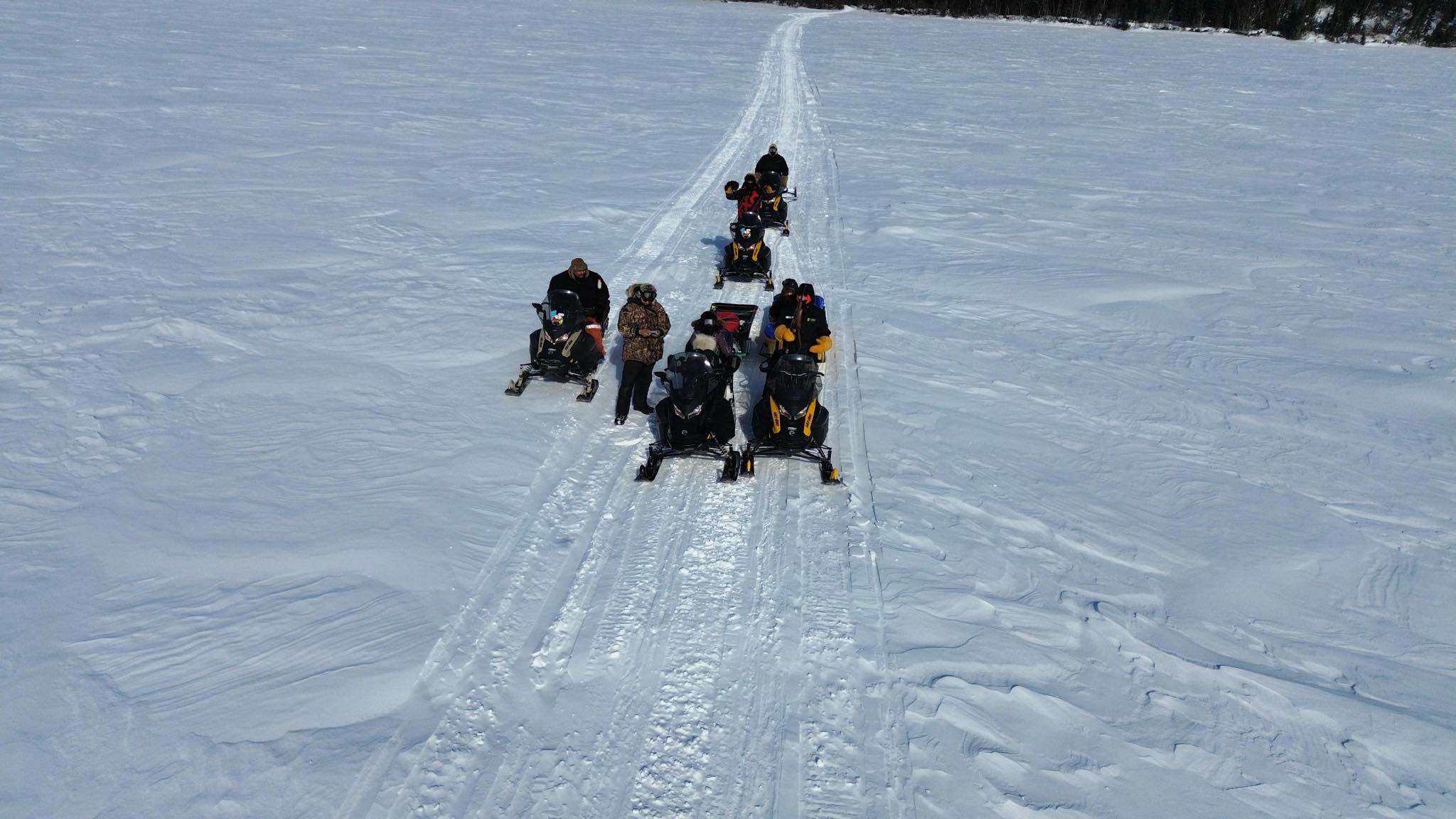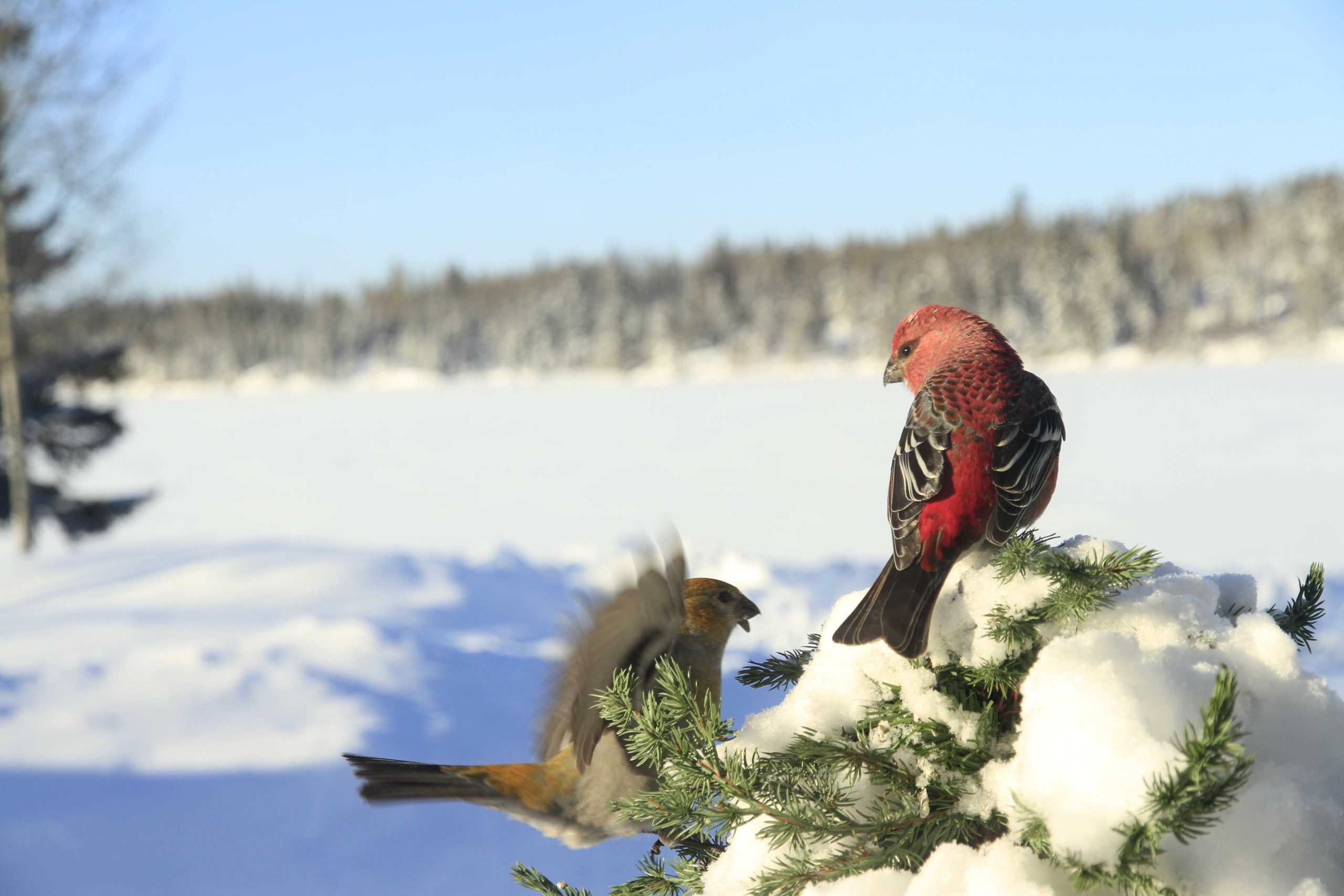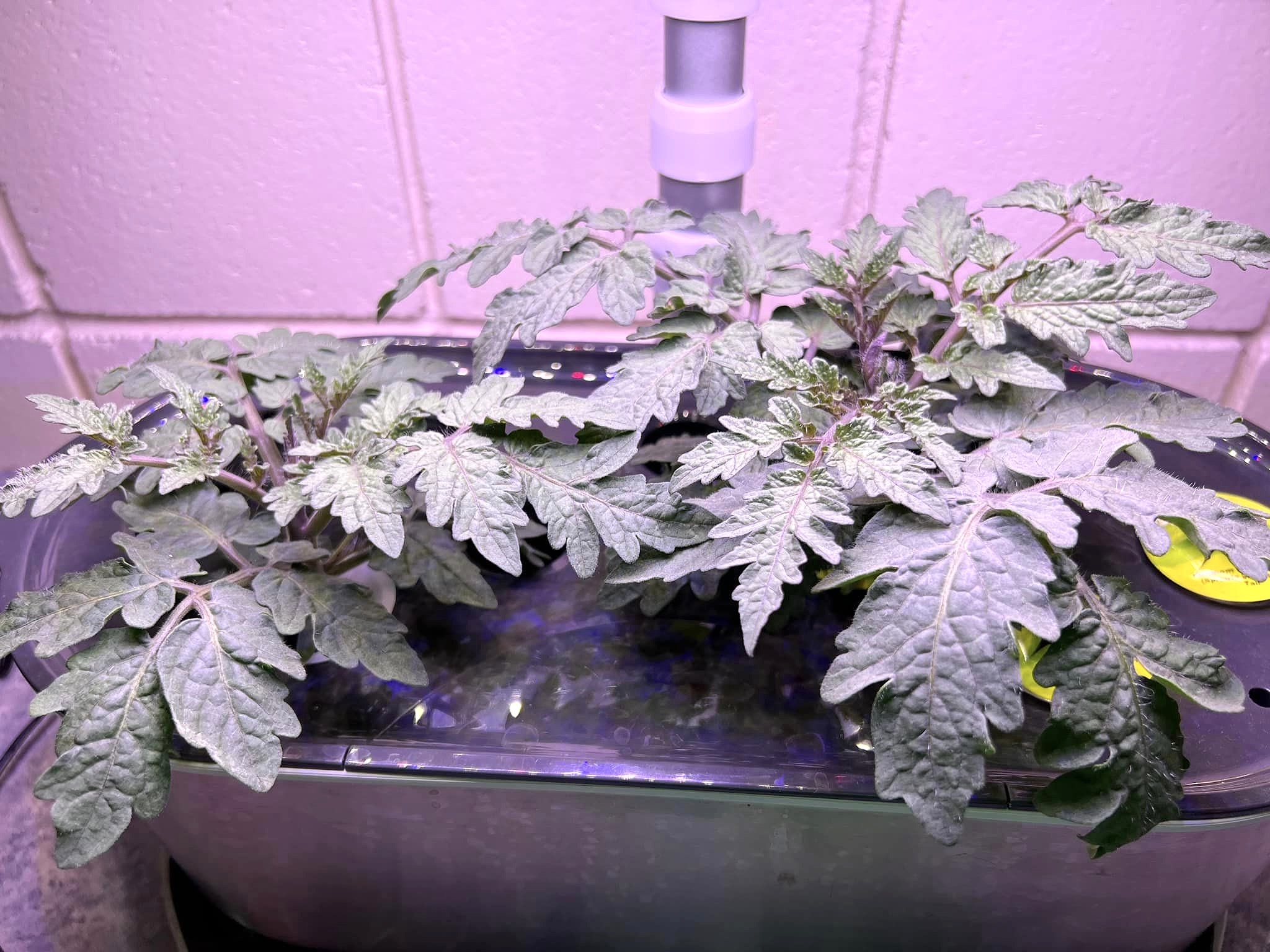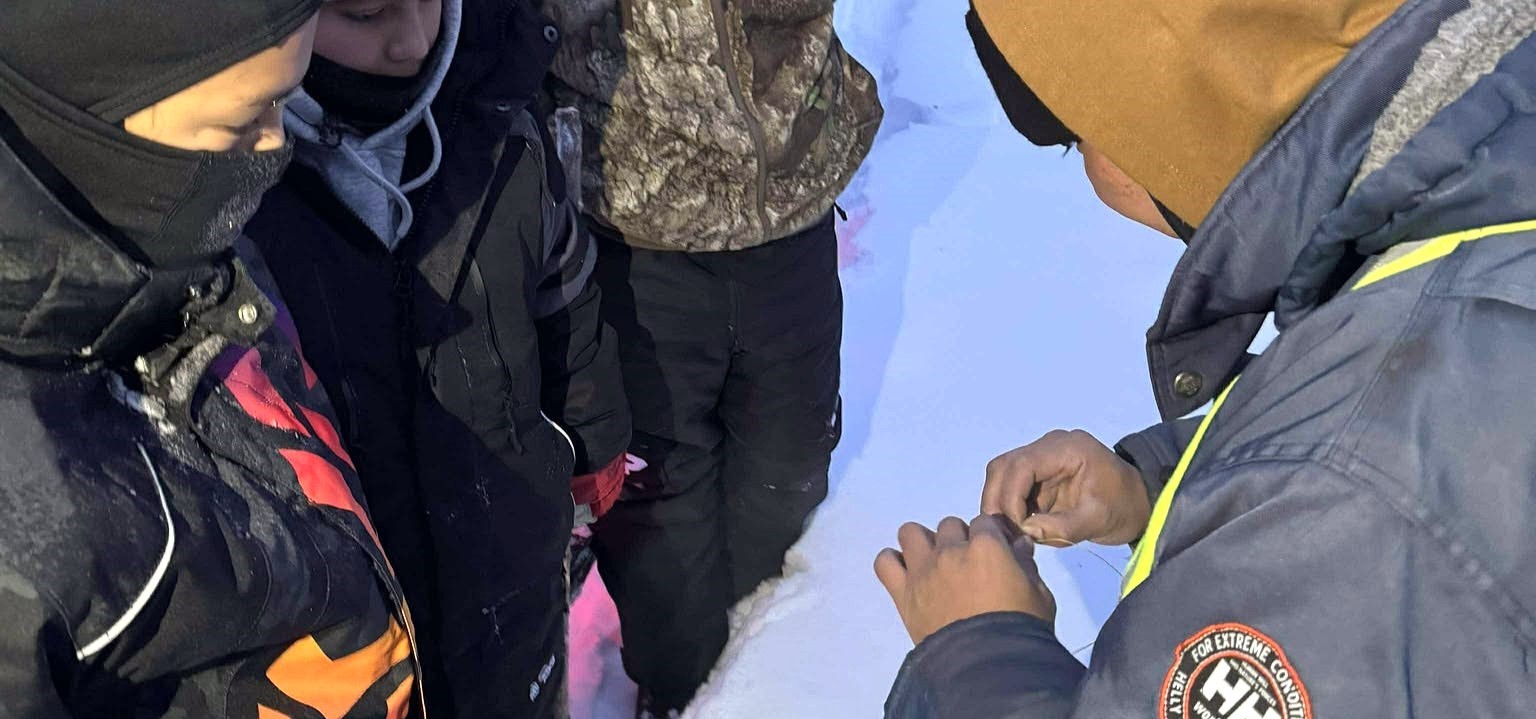Food Matters Manitoba, Northern partners, and Interlake Regional Health Authority team up to provide moose meat for elders on National Truth and Reconciliation Day.
By Chantal Marie Schromeda
Many years ago, Métis elder Lillian Kimball cherished the moments she spent with her family huddled around the dinner table sharing delicious, traditional wild meat in Powerview-Pine Falls.
While her mother tended to the family’s chicken and turkey coop, her father spent much of his time out on the land dedicated to providing his family and community with moose, duck, and deer.
“I was used to eating wild meat like deer and moose,” she says.
Harvesting wild meat and sharing it among the community was an integral part of life and culture in the area – getting residents through difficult economic times, explains Kimball.
While the town’s long standing paper mill is now permanently closed, during the Great Depression, the mill closed between 1932 and 1935 due to a reduced demand for newsprint, according to the Manitoba Historical Society Archives.
“There were no more jobs when the mill closed – it was terrible,” says Kimball. “Quite a few people left, they went to other places in Manitoba.”
This closure left many residents without money for food.
Residents who stayed in town hunted more frequently as a means to put food on the table for their families and others around the community – with Kimball’s father often harvesting moose and deer for relatives.
Now a resident at Sunnywood Manor Personal Care Home in Powerview-Pine Falls, it’s been years since Kimball has had the familiar taste of wild meat.
But for National Truth and Reconciliation Day, Food Matters Manitoba (FMM), Northern partners, and Interlake Eastern Regional Health Authority (IERHA) joined forces to provide elders in Powerview-Pine Falls and Ashern with moose meat.
“It was an honour and a privilege to be able to share moose meat with elders in the hospitals and care homes on National Truth and Reconciliation Day,” says FMM’s Executive Director, Demian Lawrenchuk.
FMM was initially contacted by IERHA with a plan to find wild meat for elders in a couple of their medical facilities, he explains.
“I immediately got excited and started talking with our team to see how we could make this work,” he says.
Once hearing about the plan, traditional harvester and FMM’s Northern partner Marvin Cook, Cook’s grandson, and FMM’s Community Project Coordinator Myron Cook – Cook’s son, wasted no time getting out onto the land in Kisipakamak (Brochet) to harvest a large bull moose for the elders.
For Cook, working with his family for this initiative was a rewarding experience – especially learning from his father, who he notes has so much traditional knowledge to pass down
“Providing meat to our elders is a very important tradition to conserve and secure,” says Cook. “I am very proud to be able to do so.”
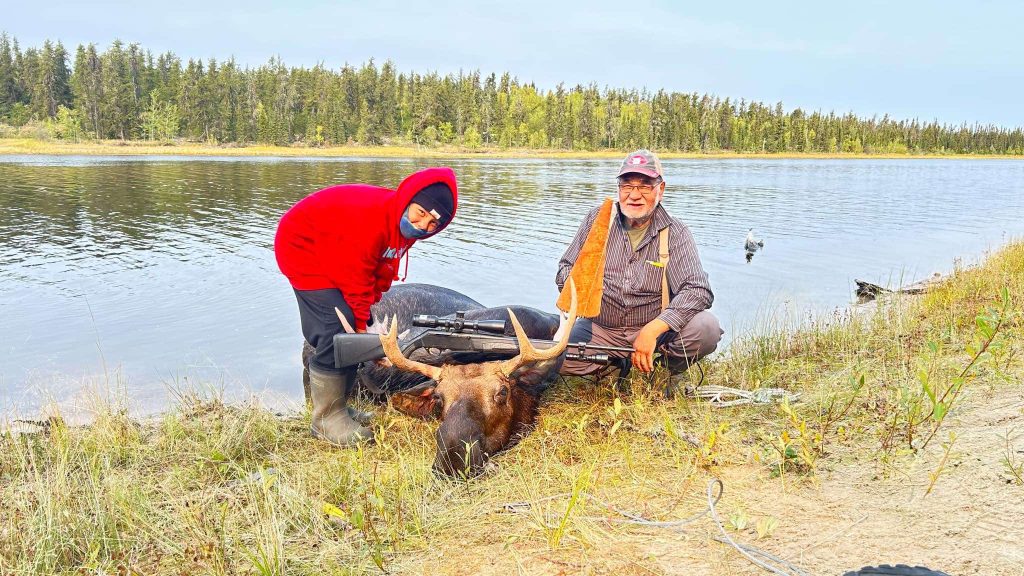
Marvin Cook and his grandson with the moose for elders. Myron Cook
The group butchered, packaged, and froze the moose with most of the meat immediately handed out throughout the community with a portion set aside for this initiative, adds Lawrenchuk.
The moose was placed and sealed into a cooler for FMM’s Northern Coordinator Morgan McCurdy, the morning of her flight from Kisipakamak to Winnipeg.
“During my connection in Thompson it was placed in a freezer during my layover,” she says. “On the flight home to Winnipeg all I could think was, ‘This cooler better be in the bottom of this plane!’”
Once McCurdy landed in Winnipeg, Lawrenchuk transported the meat to Powerview Pine-Falls and Ashern to be picked up by one of the IERHA staff.
For Regional Manager of Indigenous Health with IERHA, Jamie Boyer, this initiative with FMM meant introducing and honouring Indigenous ways of knowing, being, and healing into the health care system.
“These types of initiatives are important for representation, reconciliation, and can provide a pathway forward for future initiatives,” says Boyer.
At Sunnywood, elders gather around one another in the dining room as they are served a delicious roast, followed by moose meat tacos a couple days later – a hit among residents, states cook Holly Arthur.
“It’s been an amazing experience,” she says. “I’ve never done moose, so this is my first time cooking moose and it turned out amazing.”
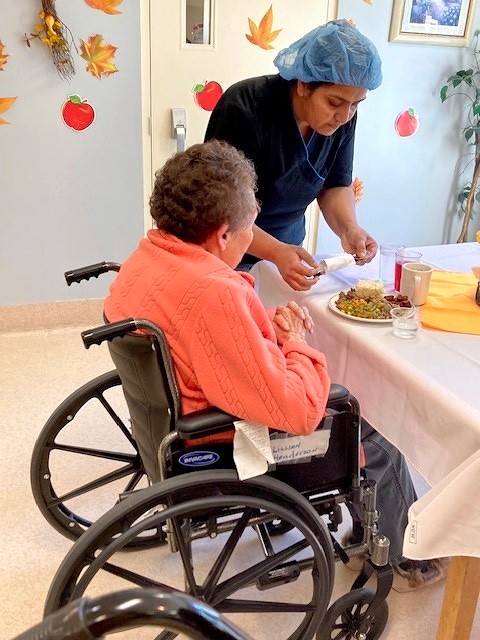
Elders being served the harvested moose. Angelina Hartwell
In Ashern, moose meat was served as a taco salad for lunch, with a bannock taco and moose stew at dinner for patients on acute and in the personal care home, explains cook Tanya Rank.
For many of the residents, eating the traditional meat brought back feelings of nostalgia.
“Some of the ladies stated they cooked it in their own kitchens and I believe some of the men, if not all, were hunters,” says Rank.
Many of the residents offered fond stories of their youth, hunting, and eating wild meat.
“It was very touching to watch them recount tales from their youth with huge smiles on their faces – from hunting with dad or having eaten wild meats all the time,” says Boyer.
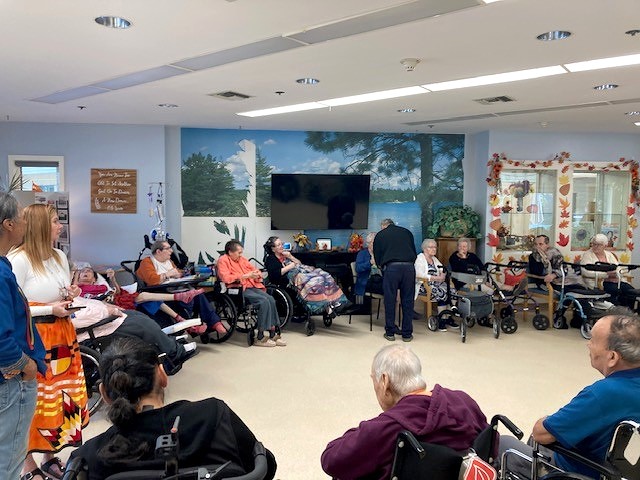
Elders gather together prior to eating the traditional meat. Angelina Hartwell
Upon reflecting on childhood memories, Kimball believes the community was most healthy eating wild meat.
“It seems to me that people are not so sick when they eat wild meat,” she remarks. “There’s just something about it, and the thing is, when the mill closed people started hunting more because there was no money.
Moose meat in particular has a high nutrient content and lean protein – offering medicinal and healing properties, according to 2024 Nutrients study by Shafiee and others.
In the Cree understanding, all things are connected, explains Lawrenchuk.
Part of medicine’s benefits in the Cree culture is not only their physical properties, but the energy that they’ve soaked up throughout their lives – the purity and wellbeing of the natural world that emboldens their physical properties, he continues.
“This is the same with our traditional food,” he states. “The moose continues this cycle of life by consuming these plants and medicines and turning them into food for us to consume.”
Wild food keeps elders connected to themselves, their families, their memories, and their traditions, adds McCurdy.
“This is especially important after a lifetime of society telling them that their culture is less than,” she says. “This ability to heal in the final years of life is a good step in the path towards reconciliation.”
The initiative was an empowering one – with FMM’s work focusing so heavily on employment, empowering communities and youth, building local food systems, and improving health and well being, to be able to see the movement reach down south is a special feeling.
“It feels really good to be able to see this movement even reach all the way down south to feed elders some of the food that they grew up with,” says Lawrenchuk.
While it’s not possible to provide access to wild meats for everyone, taking the time to support small initiatives like this goes a long way, explains FMM’s Northern Programs Manager, Myles King.
“The mental and spiritual impact of eating food that is intertwined with your culture and past cannot be overstated – especially for those that have not had access to it for years,” states King.
Rank adds that initiatives like this would be a great option on occasion for elderly residents – especially during hunting season.
While Lawrenchuk notes it wouldn’t be practical or wise to harvest moose in the north with the goal of continuously providing it to people in the south, FMM looks forward to special moments like this and hopes to be able to do it again.
Everyone’s involvement in making this initiative happen cannot be understated – the staff, patients, and residents were all impressed with the generosity of FMM and the team of harvesters in Kisipakamak, adds Boyer.
“The excitement and commitment from our harvesters up north highlights the strong sense of community that our people hold,” says Lawrenchuk.
Despite having never met these elders, the team up north was moved by a strong sense of duty and opportunity to share, adds Lawrenchuk.
“This is one of the main teachings I’m constantly reminded of – take care of the elders, take care of each other,” he says.

Elders gathering in celebration. Angelina Hartwell

